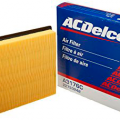When to Change Oil Filters
When to change oil filters based on what your car is telling you
The purpose of oil is to lubricate the moving parts inside the engine. This lubrication process keeps all the moving parts of your engine from the piston rings to the valve train and metal to metal friction from overheating. To get the best performance, your engine needs an oil filter to capture all the harmful material, dirt, debris and metal fragments that can cause damage to the engine.
The oil filter is designed with fabric and paper material arranged in sections – this traps all the particles that can cause damage to the engine. When the filter is completely jampacked and can’t absorb more contaminants, it gets clogged, the engine becomes less lubricated, and it begins to wear out and run louder. Heat build up faster which will likely damage the engine or result into engine failure.
Ways to tell if your car needs an oil or filter change
Every car has its unique way of communicating with the user when maintenance is required. The followings methods are one of the few ways to know if your vehicle needs an oil or filter change.
Dashboard oil replacement light is on
Most of the modern cars now have an oil change indicator light, which is activated by sensors that monitor the engine’s condition. Some vehicles have an oil pressure warning light which could suggest you are driving with insufficient oil or the engine has an catastrophic loss of oil pressure. If you see this warning light, you should stop your car immediately and off the engine to avoid permanent engine damage. It is also essential to change your oil and filter when the oil replacement light is on, even when you believe your oil is still good and fresh. In many cases, the service light can turn on because of many reasons such as replacing the oil filter which could mean that it’s being clogged by debris and grime.
Listen out for increased engine noise
You know your vehicle sound more than anybody so it should be easy to know when your car is not sounding normal. If you notice a change in your vehicle sound or your engine become noisier, it could mean you need oil and filter replacement. As the engine oil becomes old, it begins to lose its lubricating properties due to dirt and debris. The engine may start to grind against each making the engine to sound differently. Therefore, it is advisable you listen to your car and replace both oil and filter if you discover such noise.
Check the oil level and color
To check your car oil level and color, open the bonnet of your car and locate the dipstick. Take it out and wipe with a clean cloth so you can find good reading. Insert the dipstick back and remove to get your accurate reading. Most dipstick is marked to identify the maximum and minimum oil level. It is essential to know when the oil level drops and the color changes. Looking at your dipstick, check the oil color. Fresh color will be transparent with light brown which becomes dark overtime then eventually thick and black. When the oil loses its light brown color or the level drops to low, then it’s important you change your engine oil to maintain the optimum performance.
Exhaust Smoke
Smoke can also indicate if there’s enough oil in your vehicle or not. A translucent vapor coming out of your tailpipe indicate the engine is in good condition, but if you notice the smoke being emitted, then there is a possibility of oil leakage. Therefore your need to refill the oil and change the filter.
Miles traveled
If you frequently travel by your car and you clock up a lot of miles, then it might be right to replace oil/filter, but you should always read the vehicle manual. It is recommended by manufacturers to change the oil every 3,000 miles, but with the latest technology and synthetic engine oil, it is unlikely you change your oil often. Every manufacturer has there standard duration on when to change the oil, but that should always base on your car performance.
Conclusion
Many consider not changing the filter when its time to change the oil keeps some money in their pocket. Not changing the filter can cause more damage to your car. If you leave you your old filter, as soon as you ignite your engine that nice clean engine oil will be as dirty as the oil you drained out. There no point of changing the oil without changing the filter and there’s no point of replacing the filter without changing the oil. These two works together. Refilling the oil and replacing the filter can save your engine from damage and potentially safe extra money in your pocket.










